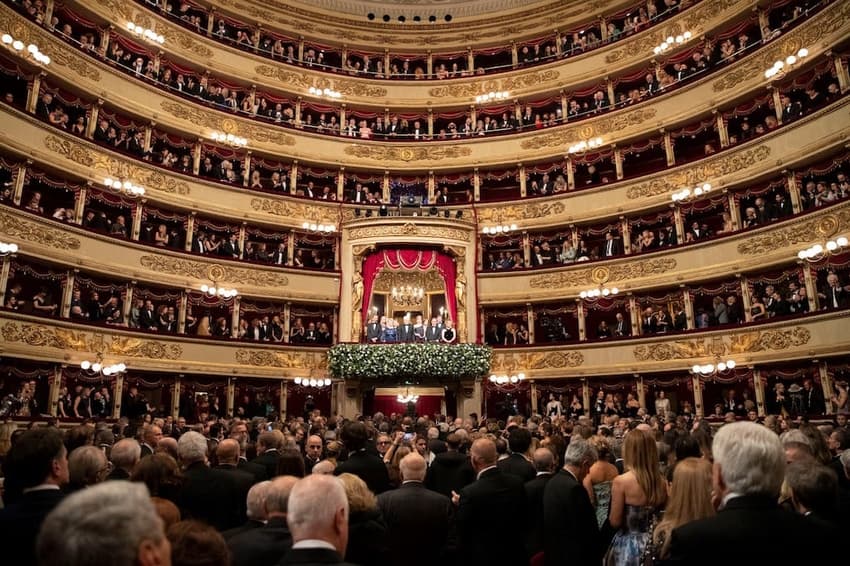UNESCO recognises art of Italian opera singing

The UN cultural agency on Wednesday added to its list of intangible global heritage Italian opera singing, an art "transmitted only orally" between maestro and pupil that attracts students globally.
"This is an official confirmation of what we already knew: opera singing is a world excellence," Italy's Culture Minister Gennaro Sangiuliano said in a statement after UNESCO's decision.
Opera originated in Italy, home to Scarlatti and Verdi. It was sung by Italian patriots and some of the world's greatest arias came from the peninsula.
Italian opera is "a physiologically controlled way of singing that enhances the carrying power of the voice in acoustic spaces such as amphitheatres and churches", UNESCO said.
READ ALSO: Italy bids for UNESCO status for traditional Italian espresso (again)
The art is associated with specific facial expressions and body gestures and involves a combination of music, drama, acting and staging.
It also "promotes collective cohesion and sociocultural memory" as well as being "a means of free expression and intergenerational dialogue", UNESCO said.
After various experiments with musical theatre in the 16th century, opera came into being around 1600 in Florence, with the founding of an academy promoting an innovative combination of sung text and music.
READ ALSO: UNESCO recommends putting Venice on heritage danger list
The first great composer of opera is considered to be Italy's Claudio Monteverdi, who lived from 1567 to 1643.
Today there are around 60 opera houses across Italy - a global record - while opera singers such as 20th-century tenor Luciano Pavarotti have been venerated as major stars.
Comments
See Also
"This is an official confirmation of what we already knew: opera singing is a world excellence," Italy's Culture Minister Gennaro Sangiuliano said in a statement after UNESCO's decision.
Opera originated in Italy, home to Scarlatti and Verdi. It was sung by Italian patriots and some of the world's greatest arias came from the peninsula.
Italian opera is "a physiologically controlled way of singing that enhances the carrying power of the voice in acoustic spaces such as amphitheatres and churches", UNESCO said.
READ ALSO: Italy bids for UNESCO status for traditional Italian espresso (again)
The art is associated with specific facial expressions and body gestures and involves a combination of music, drama, acting and staging.
It also "promotes collective cohesion and sociocultural memory" as well as being "a means of free expression and intergenerational dialogue", UNESCO said.
After various experiments with musical theatre in the 16th century, opera came into being around 1600 in Florence, with the founding of an academy promoting an innovative combination of sung text and music.
READ ALSO: UNESCO recommends putting Venice on heritage danger list
The first great composer of opera is considered to be Italy's Claudio Monteverdi, who lived from 1567 to 1643.
Today there are around 60 opera houses across Italy - a global record - while opera singers such as 20th-century tenor Luciano Pavarotti have been venerated as major stars.
Join the conversation in our comments section below. Share your own views and experience and if you have a question or suggestion for our journalists then email us at [email protected].
Please keep comments civil, constructive and on topic – and make sure to read our terms of use before getting involved.
Please log in here to leave a comment.